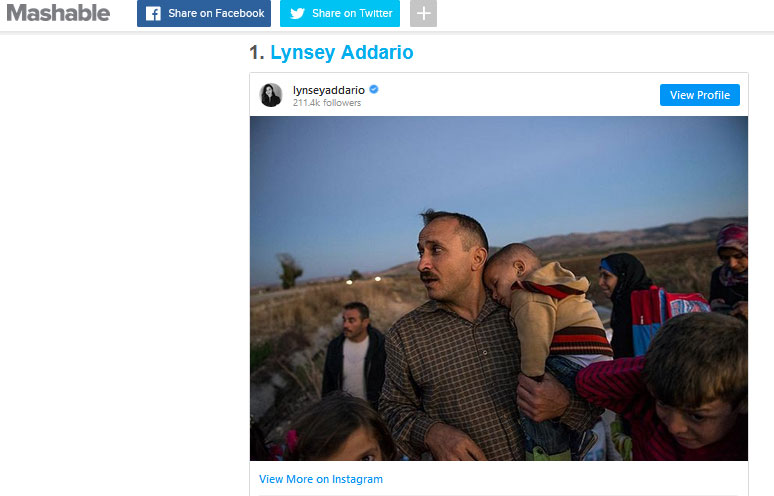Instagram has clarified its Embed API doesn’t grant a sub-licence to third-parties to publish its users’ posts, and media outlets embedding content are required to seek permission from the copyright holder. This announcement potentially invalidates a copyright loophole exploited by some media outlets.
Embedding posts allows third-parties to copy code and generate visual content that remains hosted on Instagram’s server. This semi-legal method is a quick and sneaky way to bypass licensing an image, and media outlets may not seek permission from the copyright holder due to a perception it’s ‘sharing’ rather than publishing. The feature is available on all Instagram public posts without an option to opt-out, and few professional photographers will limit their profile reach by setting their profile to private.
In 2016 US photojournalist Stephanie Sinclair sued tech news site, Mashable, for copyright infringement after it published her image by embedding its code in one of her Instagram posts. Mashable initially offered a meagre US$50 licensing fee for the photo, and after she declined Mashable used Instagram’s Embed API as a licensing loophole to publish the photo anyway.

Mashable‘s lawyers argued that Instagram’s T&Cs infers a sub-licence between the social media platform and third-parties due to a clause which states all users grant Instagram a ‘non-exclusive, fully paid and royalty-free, transferable, sub-licensable, worldwide license to the Content that you post’. The clause protects Instagram from potential legal disputes arising from hosting user content, however a few months ago Inside Imaging reported New York City Judge, Kimba Wood, sided with Mashable. Although no one asked Facebook, Instagram’s owners, whether the Embedding API feature granted a sub-licence to third parties.
An almost identical copyright case is playing out between US photographer, Elliot McGucken, and media outlet, Newsweek. McGucken rejected Newsweek’s request to license a photo, and so Newsweek simply embedded his Instagram post. McGucken sued, and in a preliminary hearing Newsweek’s lawyers confidently argued the Embed API grants them a sub-licence. Except, in this instance, a different judge in the same court wasn’t convinced.
Tech media outlet, Ars Technica, asked Facebook to clarify the sub-licence clause in reference to the Embed API.
‘While our terms allow us to grant a sub-license, we do not grant one for our embeds API,’ a spokesperson told Ars Technica. ‘Our platform policies require third parties to have the necessary rights from applicable rights holders. This includes ensuring they have a license to share this content, if a license is required by law.’
The surprising decision in the McGucken case led to Judge Wood revising her ruling from April ‘in order to correct clear error’. The court ruled ‘full force to the requirement that a license must convey the licensor’s (Instagram) “explicit” consent to use a copyrighted work’.
This will be good news for photographers, but dismantles the perks of publishers using Instagram’s Embed API. While some media outlets use it to bypass licensing a photographer’s image, there are instances where an Embed API is a useful tool for generating complementary visual content. Instagram is also being a little two-faced as its Platform Policy states it helps ‘broadcasters and publishers discover content, get digital rights to media, and share media using web embeds’.
– Like our content? Subscribe to our free weekly newsletter to stay informed, and support trusted independent journalism!





Be First to Comment